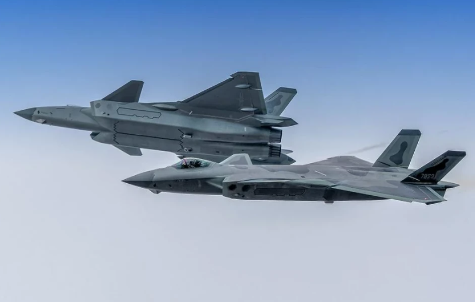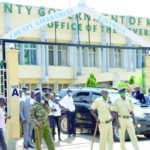On Wednesday, Taipei reported detecting 45 Chinese military aircraft around Taiwan, the highest number recorded in a single day this year. This escalation comes just days before Lai Ching-te, whom China regards as a “dangerous separatist,” is inaugurated as Taiwan’s president on May 20.
China views democratic Taiwan as part of its territory and has vowed not to renounce the use of force to bring it under Beijing’s control. It has warned that Lai’s presidency would bring “war and decline” to Taiwan, and tensions have been high since his election in January.
Taipei’s defense ministry stated that 26 of the 45 Chinese aircraft detected on Wednesday had crossed the median line of the Taiwan Strait, a line that bisects the 180-kilometer waterway separating Taiwan from China. The ministry also noted the presence of six Chinese naval vessels and affirmed that it had “monitored the situation and responded accordingly.” On Tuesday evening, 23 Chinese aircraft, including fighter jets and drones, were detected around Taiwan within a two-hour period.
China has increased military pressure on Taiwan in recent years, maintaining a near-daily presence of warplanes, drones, and naval vessels around the island. The largest such deployment was in September, when Beijing sent 103 warplanes and aircraft, with 40 crossing the median line. Experts describe these actions as “grey zone tactics,” intended to exhaust Taiwan’s military without outright acts of war.
In addition to military maneuvers, China has been deploying coast guard ships and official fishery vessels around Taiwan’s outlying island of Kinmen since February.
On Tuesday, five Chinese coast guard ships were seen in Kinmen’s “restricted waters” for three hours before leaving. This was the fifth such sighting in May, which the Taiwanese coast guard said “seriously affect navigation safety and undermine peace and stability across the Taiwan Strait.”
The coast guard urged China to “exercise self-restraint and immediately cease this irrational behavior.”
Lai, like the outgoing President Tsai Ing-wen, rejects Beijing’s claims over Taiwan. China has condemned Lai and his deputy, Hsiao Bi-khim, Taiwan’s former representative to the United States, as an “independence duo.”



